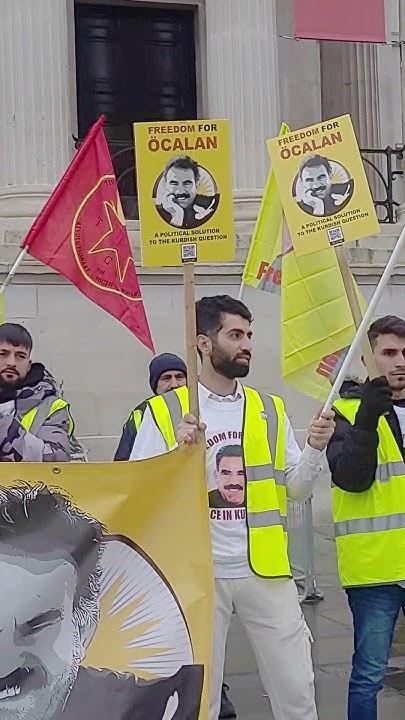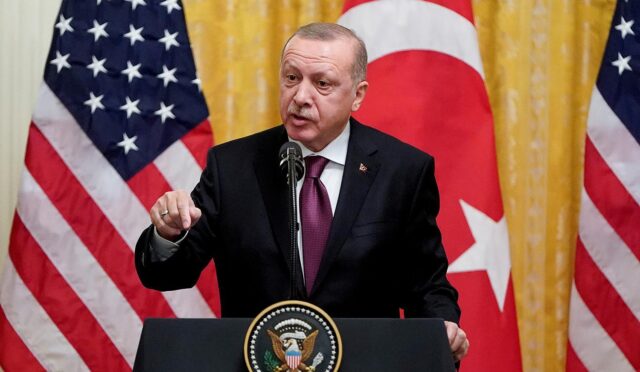Ocalan’s Historic Appeal for Peace
In a significant moment for Turkey, an emotional crowd erupted into applause and tears in the Kurdish-majority southeastern city on Thursday, following a powerful appeal from Abdullah Ocalan, the imprisoned founder of the PKK (Kurdistan Workers’ Party). His call for the militant group to disband and for fighters to lay down their weapons was broadcast at an Istanbul press conference and relayed to thousands gathered in the region that has been deeply affected by decades of conflict.
“All groups must lay down their arms and the PKK must dissolve itself,” Ocalan stated in a declaration he crafted in his solitary confinement on Imrali Island, where he has been held since 1999. This historic call comes on the heels of Ankara’s recent overture to Ocalan, who has been at the center of a protracted insurgency that has claimed tens of thousands of lives.
Reactions from the Ground
Among those gathered in Diyarbakir, 3,000 people celebrated Ocalan’s message of peace. Emine Atac, 45, expressed her hopes for a brighter future, stating, “Today is a holy day, a blessed day. We are very happy. We want peace and freedom.” Similarly, 65-year-old Ferha Akbuyuk characterized Ocalan’s message as one advocating for “peace and brotherhood” between Turks and Kurds, emphasizing its focus on humanity, rights, and justice.
However, not all responses were optimistic. Sukru Erdogan, 52, voiced his disappointment, noting that Ocalan’s declaration failed to address key issues such as federation or cultural rights for the Kurds. His skepticism reflects a broader concern among some community members regarding the implications of Ocalan’s call.
International and Regional Support
Ocalan’s declaration has garnered attention beyond Turkey, with regional leaders weighing in on its significance. Nechirvan Barzani, the president of Iraqi Kurdistan, encouraged the PKK to embrace Ocalan’s message, pledging full support for the peace process. Meanwhile, the German foreign ministry described the declaration as a “historic chance” to end the long-standing conflict, highlighting its potential impact.
Analysts view this moment as a critical turning point. Hamish Kinnear, a senior analyst at Verisk Maplecroft, remarked that Ocalan’s call represents a seismic shift not only for Turkey but for the entire region. However, the true test lies in how the PKK’s military leaders, primarily based in northern Iraq, will respond to this unprecedented appeal.
Concerns Over Implementation
The reaction from PKK fighters is uncertain, particularly those aligned with the US-backed Syrian Defense Forces (SDF) in northeastern Syria. These groups are currently facing pressure from Damascus to disarm while simultaneously defending against Turkish-backed militias. The potential for a split response within the PKK remains a critical factor in determining the overall success of Ocalan’s appeal.
Kinnear suggested that if the majority of Turkey-based PKK members heed Ocalan’s call, it could lead to similar actions from PKK militants in Iraq and associated groups in Syria, raising hopes for a more cohesive response.
Cautious Optimism from Turkish Officials
While the Turkish government has yet to formally respond to Ocalan’s declaration, some officials are expressing cautious optimism. Efkan Ala, deputy chairman of President Recep Tayyip Erdogan’s ruling AKP, remarked that if the PKK follows Ocalan’s advice to disarm, it could free Turkey from the burdens of conflict. This sentiment hints at a possible shift in the government’s approach toward the longstanding Kurdish issue.
Since Ocalan’s imprisonment in 1999, multiple attempts have been made to resolve the conflict, which erupted in 1984. The last peace talks collapsed in 2015, creating a vacuum of communication until a recent olive branch was extended by hardline nationalist MHP leader Devlet Bahceli. Despite these recent developments, the government’s crackdown on opposition figures raises concerns about the sincerity of its commitment to peace.
Hope for Kurdish Rights
Despite the government’s repressive measures, many Kurds remain hopeful that Ocalan’s call will lead to meaningful concessions regarding their rights. With approximately 20 percent of Turkey’s 85 million population identifying as Kurdish, the implications of this peace initiative could be far-reaching, potentially altering the landscape of Turkish politics and society.
As the country stands at a crossroads, the coming days will be crucial in determining whether Ocalan’s historic declaration will translate into tangible progress for peace and stability in Turkey.







